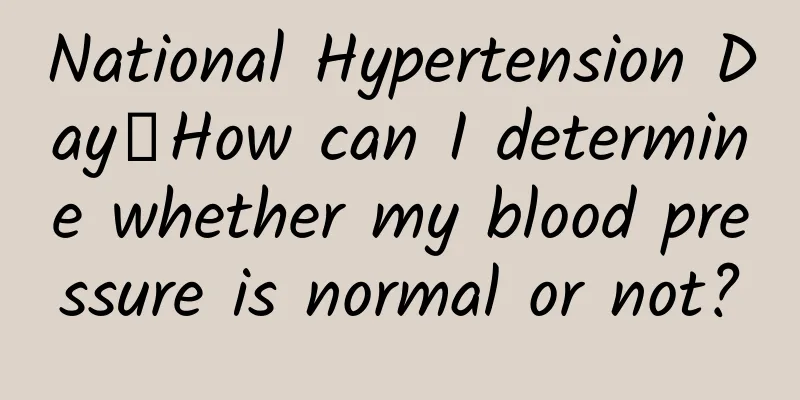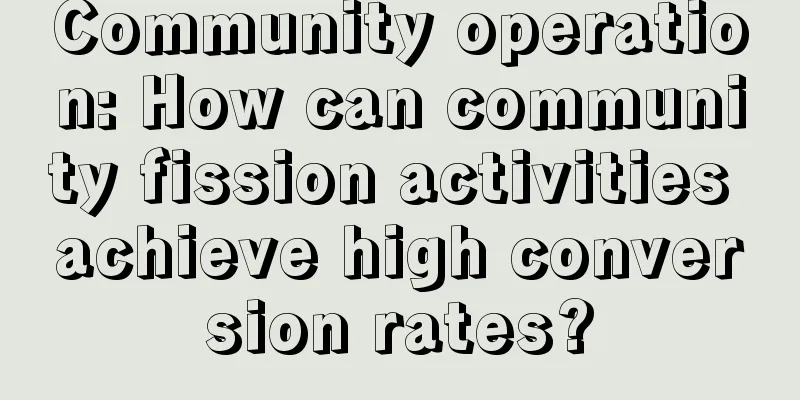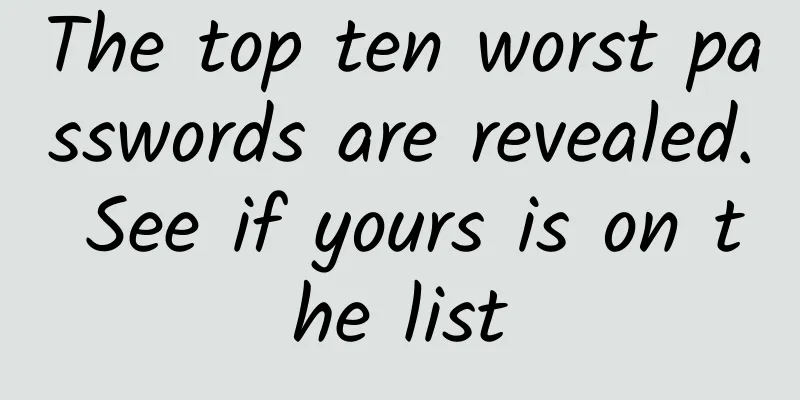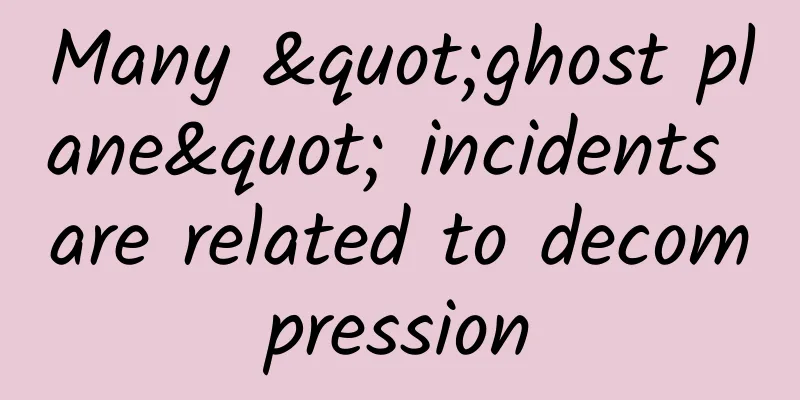Methods and strategies for community operation!
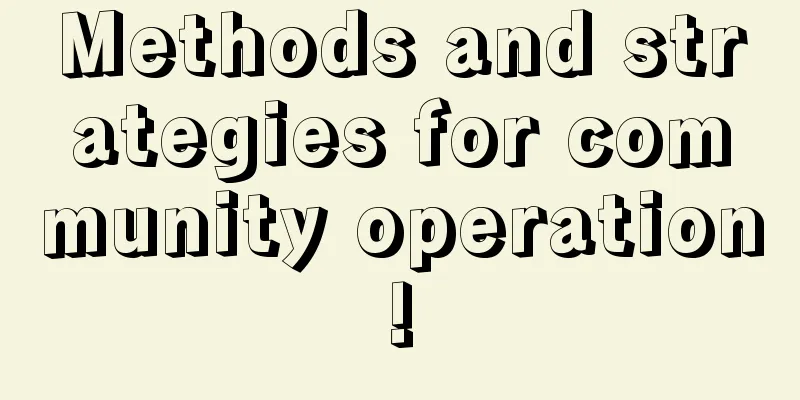
|
I believe that community operation is a topic that everyone no longer wants to discuss. Online courses on community operation are now available for as low as 9.9 yuan. So, in fact, this article is not about teaching you how to operate a community. 1. What is a community? Even though most operators claim to be proficient in community operations and the like! But what is a community? Most people really can’t explain it clearly. Even most community operation experts are only relatively proficient in the tools and software for operating communities. In fact, to discuss the concept of community, we can get a rough idea from another concept (the following content is taken from Baidu Encyclopedia. I know most people can't find it, so I won't use Wikipedia to show off):
The two words "society": "she" means "group", "hui" refers to "area for gathering", and "hui" means "a group gathered in one place". So, you see, after explaining the concept of society, some people may vaguely understand what I am saying. In fact, a community is a miniature society at the bit level: a group formed based on a WeChat group. 2. What are the necessary conditions for a community? cooperation! Let’s change the example. Suppose you are a teacher and you are asked to teach a kindergarten class or a primary school class. Which one do you think would be easier? Believe me, most people’s answer is: elementary school students. Why? Because among the primary school student group, you can appoint class leaders, study committee members, and group leaders to collaborate in management, and even the primary school students themselves can form a certain collaborative relationship. Almost every baby in kindergarten is an independent individual. Although they can play with each other, when it comes to things like snatching toys, it will inevitably cause chaos. The reason is that primary school students can collaborate with each other, but kindergarten babies can hardly collaborate with each other. If you look closely at all your WeChat groups, you’ll find that the most active ones are usually: high school classmates groups, football appointment groups, gaming guild groups, family groups, and hometown associations. The groups that usually die are: groups created after participating in an event, and user groups of a certain company. In fact, the most fundamental reason is that it is impossible to form a society/community between groups that lack collaboration. The reason why classmates’ groups, football groups, guild groups, and family groups can easily form stable communities is that before joining the group, these people have actually formed a group with a stable collaborative relationship on other platforms, and WeChat groups are another tool for them to achieve efficient collaboration. If there is no collaboration among group members, it is almost impossible to form a stable community. So, does the existence of a collaborative relationship necessarily mean that a community can be formed? Not necessarily. Let’s look at the next one. 2. Communities crushed by zero-sum games How to form a stable collaborative relationship? Although many operators may not know the underlying logic, they are already doing this: They usually set up various administrators, assistants, robots, etc. in the group, and they will also consciously support some opinion leaders (shills), small groups, etc. At the same time, in order to increase activity, offline gatherings, face-to-face meetings, red envelope distribution, topic raising, and verbal battles are often organized in an attempt to form stable social relationships of collaboration, exchange, and communication among users. And, these seem to be really useful (yes, many community courses will teach you this). But even if these are done, you will find that most communities will not be active for a few days longer than communities without collaboration. This is almost beyond human control, and no matter how capable the operators are, they cannot stop this declining trend. So, what's the problem? Key point: Believe me, what I am about to say goes beyond the operation itself. For smart operators, they will understand everything once they finish reading it. If the game relationship between community owners and community members is a zero-sum game, the decline of the community is almost inevitable. [In fact, the same is true for national and corporate management. Once citizens and employees realize the state of zero-sum game, they will start to emigrate and resign. This is almost common sense in sociology.] You see, we must first know what a zero-sum game is (in an earlier article, I said that operators must learn game theory, click to view: How an excellent operator can get the best of both worlds: the trick of game theory! In fact, the main reason is this):
Look, what kind of community is a zero-sum game? To put it simply, you sell things to customers through a group, and the money you receive is the money spent by the users. Once users realize that you are trying every possible means to take money out of their pockets, your community will collapse immediately! Haha, now you understand what I meant by why companies are not good at community operations, right? Because most companies can hardly escape the basic explanatory model of this community. So, is there any way to avoid the zero-sum game situation? Let’s continue our conversation. 4. How can a company improve its “community”? Seeing this, you should realize that the two biggest obstacles to community operations are:
In fact, explaining either of these two would be a long topic, and I’ll discuss it in depth when I have the chance (in fact, the main reason is that if I talk about it now, I’ll probably have to return the red envelope from my friend). For most companies' communities, my advice is that if your product is truly valuable and not misleading, then you can just treat the community as a means of customer management. Unless you can find a social division of labor strategy for your group members, this is another big topic. For groups and enterprises that are already capable of developing social division of labor, there are also two ways to avoid the problem of zero-sum game. 1. Make users unaware of the zero-sum game state: If your company sells sporting goods, and you want to create a group and run community operations for old customers, there are two methods below. Which one would you choose?
Believe me, your community will be much better when users don’t realize it’s a zero-sum game. 2. Turn a zero-sum game into a positive-sum game: In fact, this is a topic that most operators have always mentioned. You expect users to pay in the end (no matter how long the conversion cycle is, your ultimate goal must be to take money out of their pockets, because the cost of community operation you pay will only be transferred but will never disappear), so how do you provide users with something more valuable than direct transactions between two parties? Author: Barley Source: Damai Operation View |
<<: Inventory of low-cost traffic-generating methods, 4 major rules!
>>: [Case] Start from the scenario and make your fear marketing more effective!
Recommend
Apple iOS 15 leak summary: In addition to new icons, new lock screen, new notifications, there are 3 major changes
If you are a qualified Apple fan, even if there a...
WeChat can now release Kongming lanterns: a must-try for couples for only 3 days
From August 13th to 15th, you can release Kongmin...
Tips and strategies for becoming a “super user”!
The free feast on the Internet is becoming a thin...
Things Android phone users should avoid
Every friend who owns an Android phone, please no...
The whole process of user growth fission of "old bring new"
Without users, there is no revenue. In an era of ...
NDRC fined Qualcomm 6.1 billion yuan and required Qualcomm to make five rectifications
Fine of 6.1 billion yuan In the early morning of ...
Representatives of the 2022 Two Sessions suggested encouraging childbirth through tax means: What are the specific preferential policies? Attach details
Although my country has fully relaxed the three-c...
Don't want to exercise? It turns out you can blame your intestinal flora
Looking at the fitness and marathon masters in my...
Is the customization cost of Changsha Photo Mini Program high? Changsha photo app customization cost and process
The launch of mini programs has brought convenien...
How much does it cost to customize the Xianyang Big Roulette Mini Program? What is the price quote for the customized Xianyang Big Turntable Mini Program?
How much does it cost to customize the Xianyang B...
Are your eyes also afraid of the cold? Be careful of these eye diseases caused by "freezing"
After the winter solstice, water turns to ice Wor...
Community operation: the key point to keep the community active!
I ate and drank too much in the first half of the...
SEO order-taking platform, what is the order-taking process for SEO outsourcing services?
Many people who are good at SEO like to provide S...
CCS Insight: Mobile phone shipments in 2020 will be the lowest in a decade
2020 is going to be tough for phone makers, with ...
Xin Guobin, Vice Minister of the Ministry of Industry and Information Technology: Robotics shows a trend of "high-end industry becoming low-end"
On June 16, the China Robot TOP10 Summit was init...

